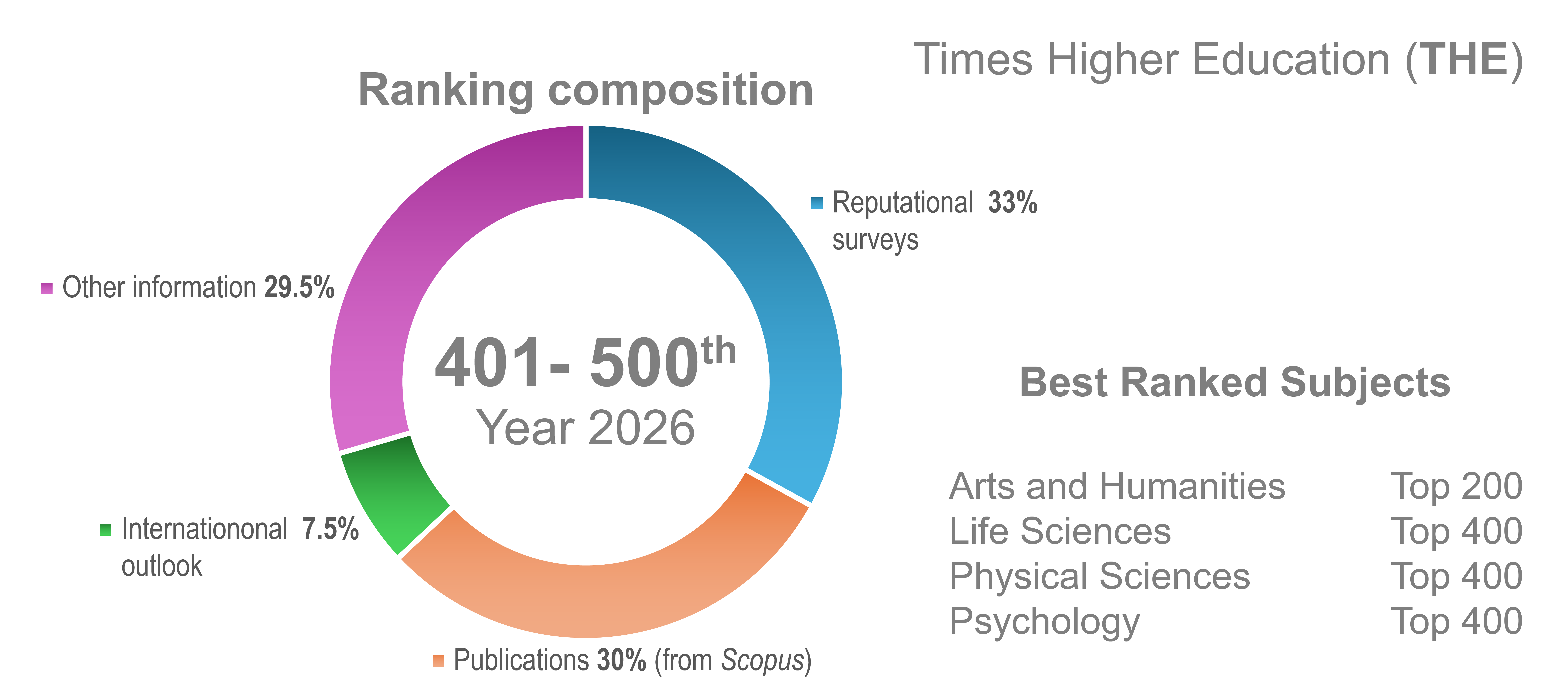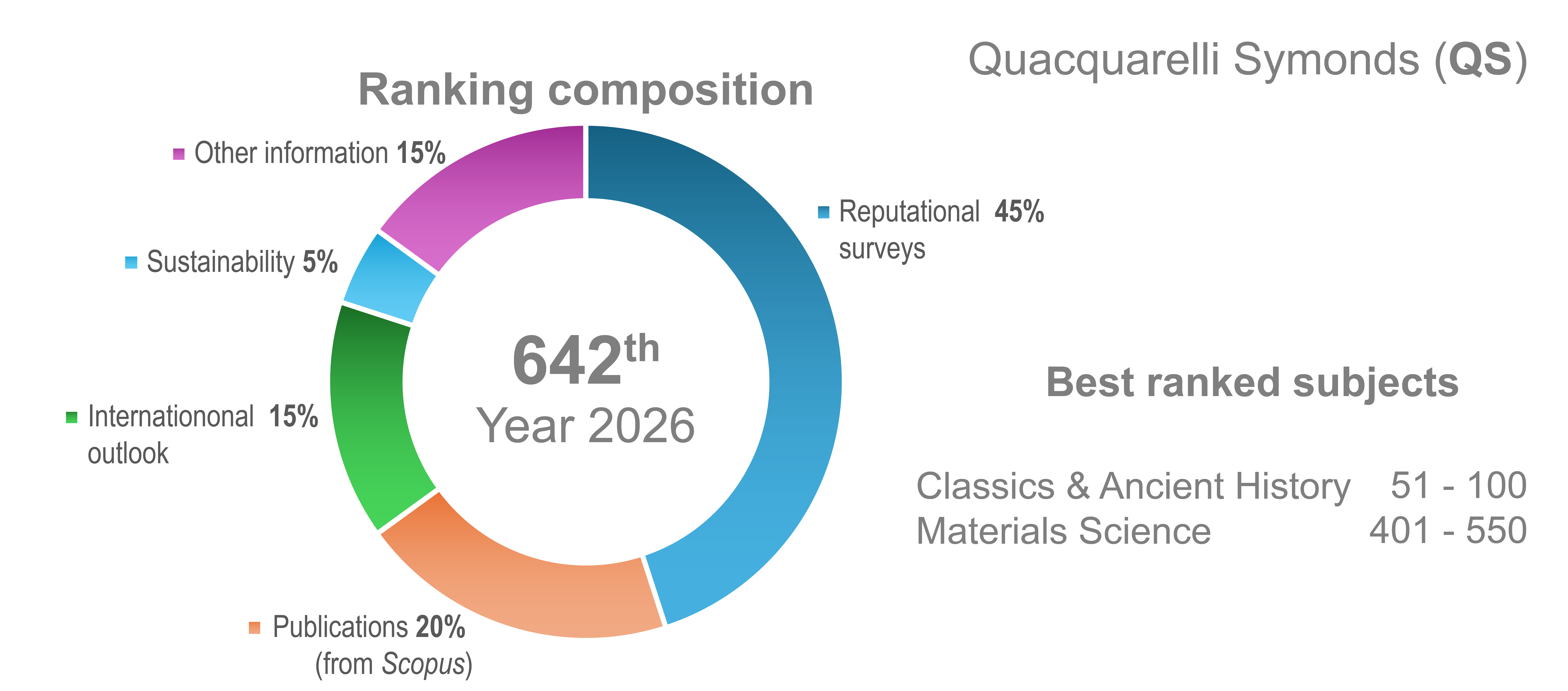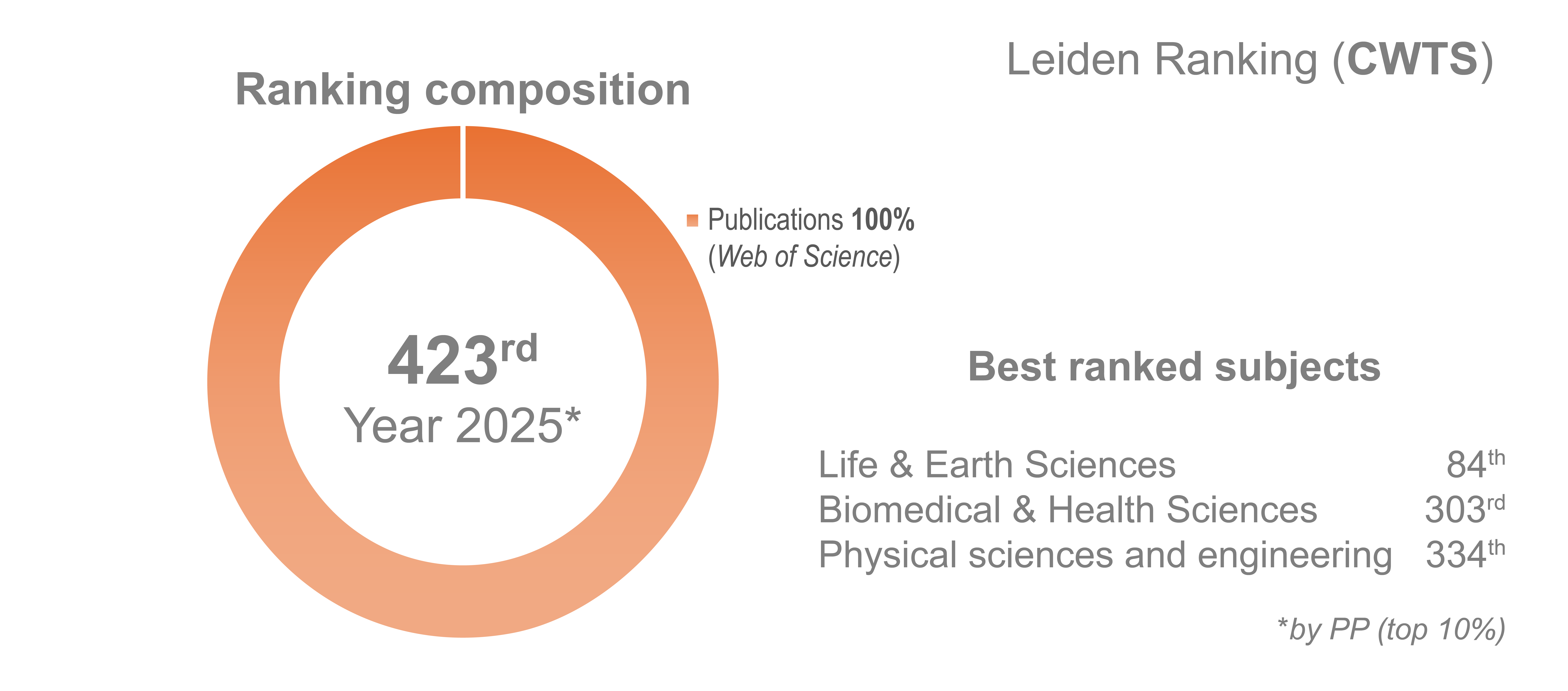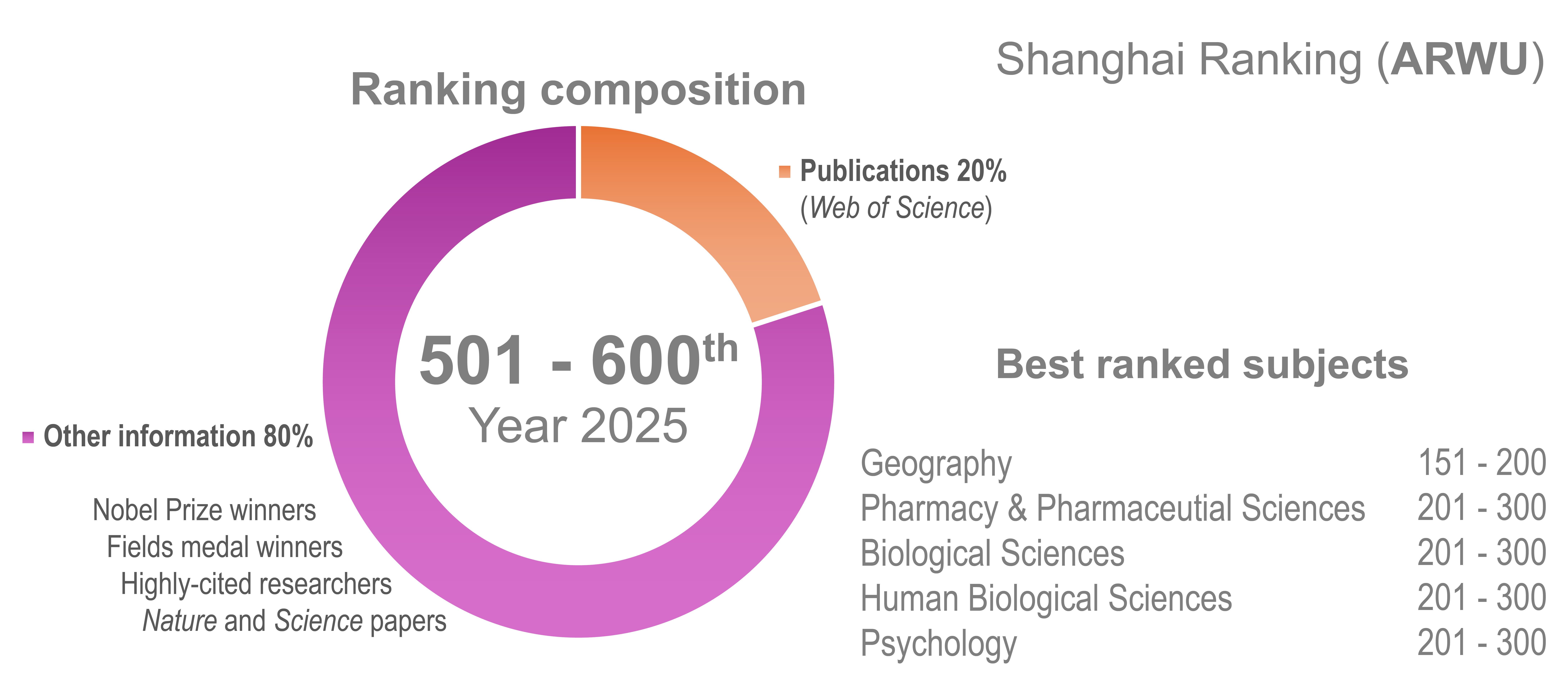Rankings
What are they and how are they made?
University rankings are lists that compare universities using indicators like publication data, institutional statistics, and surveys. Each ranking uses different methods and gives varying importance to certain criteria. These methods are not always transparent, some rankings favour some science disciplines or English-language publications, creating bias.
Our approach to rankings
The University of Fribourg appears in some rankings by submitting data, and in others where the ranking organizations collect information on their own. Participation doesn't mean full endorsement. While we acknowledge the rankings' influence, we stay critical of methods that limit how universities define their goals.
As a signatory of the Declaration on Research Assessment (DORA) and member of the European Coalition for Advancing Research Assessment (CoARA), the University of Fribourg supports fair and responsible research assessment, focusing on evaluating individuals, research units and institutions based on scientific content rather than publication metrics or journal identity, and the recognition of all types of research outputs beyond publications.
Ranking results of the University of Fribourg
The landscape of rankings has evolved from the general academic rankings to include specialized sub-rankings, focusing on specific scientific subjects, geographical locations, and emerging criteria like impact and sustainability. The following sections aim to acknowledge and contextualize our latest results in the most significant rankings:
-
Times Higher Education (THE)

The Times Higher Education (THE) World University Ranking is one of the most comprehensive university rankings, taking in consideration scientific publications information and institutional statistics, though still incorporating a factor of subjectivity into the score in the form of reputational surveys conducted by THE magazine among scholars and employers, accounting for up to 33% of the final score.
- The University of Fribourg ranks among the Top 500 Universities, out of more than 2000 institutions.
- In THE subject-specific ranking, Fribourg is among the top 200 universities for Arts and Humanities, and stands among the top 300 in the fields of Life Sciences, Physical Sciences and Psychology.
University of Fribourg at THE ranking
-
Quacquarelli Symonds (QS)

The QS World University Rankings is another comprehensive ranking, although up to 45% of the final score is composed by the results of reputational surveys.
- Fribourg is positioned 642nd in the world among more than 1500 ranked universities.
- Among the top 150 universities in Europe in terms of research impact by citations count.
- Among the 100 more influential universities in the world for Classics and Philosophy.
University of Fribourg at QS ranking
-
Leiden (CWTS)

The Leiden (CWTS) Ranking, developed by a non-profit public research institute from the University of Leiden, focuses on removing subjectivities present in other rankings and relies solely on scientometric data from the Scopus database.
- Strong results for Life and Earth Sciences (84th) and Biomedical and Health Sciences (303rd).
L'Université de Fribourg dans Leiden ranking Traditional (ENG)
L'Université de Fribourg dans Leiden ranking Open Edition (ENG)
-
Shanghai (ARWU)

The Shanghai Academic Ranking of World Universities (ARWU) assigns 70% of the score to Nobel Prizes and Fields medals, presence of highly cited researchers, and papers published in two journals (Nature & Science), while the remaining 30% comes from scientometric data.
- Fribourg ranks in the tier from 501 – 600th in the general ranking, from more than 2500 ranked universities.
- In the Global Ranking of Academic Subjects, Fribourg stands among the top 200 for Geography.
- Ranked in the tier between 201 - 300 best in the world in the subjects of Pharmacy and Pharmaceutical Sciences, Biological Sciences, Human Biological Sciences and Psichology.
University of Fribourg at Shanghai ranking
-
Sustainability and Impact rankings
The University of Fribourg participates in several rankings dedicated to sustainability. These rankings take into account environmental and societal aspects, as well as governance practices. All information and reports related to the sustainability rankings can be found here.
